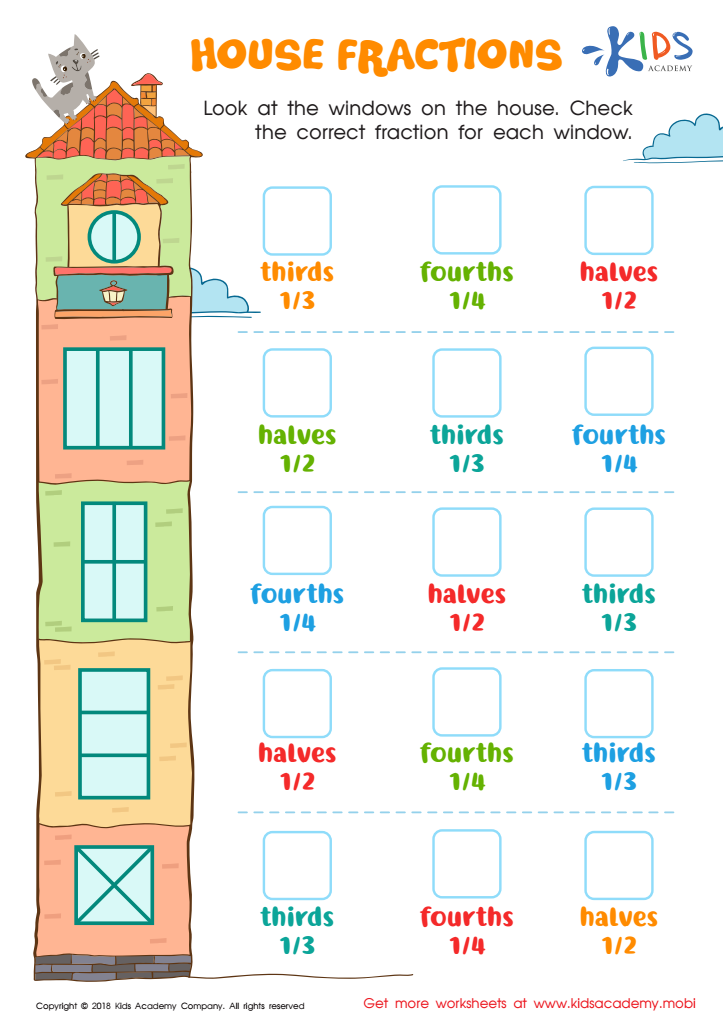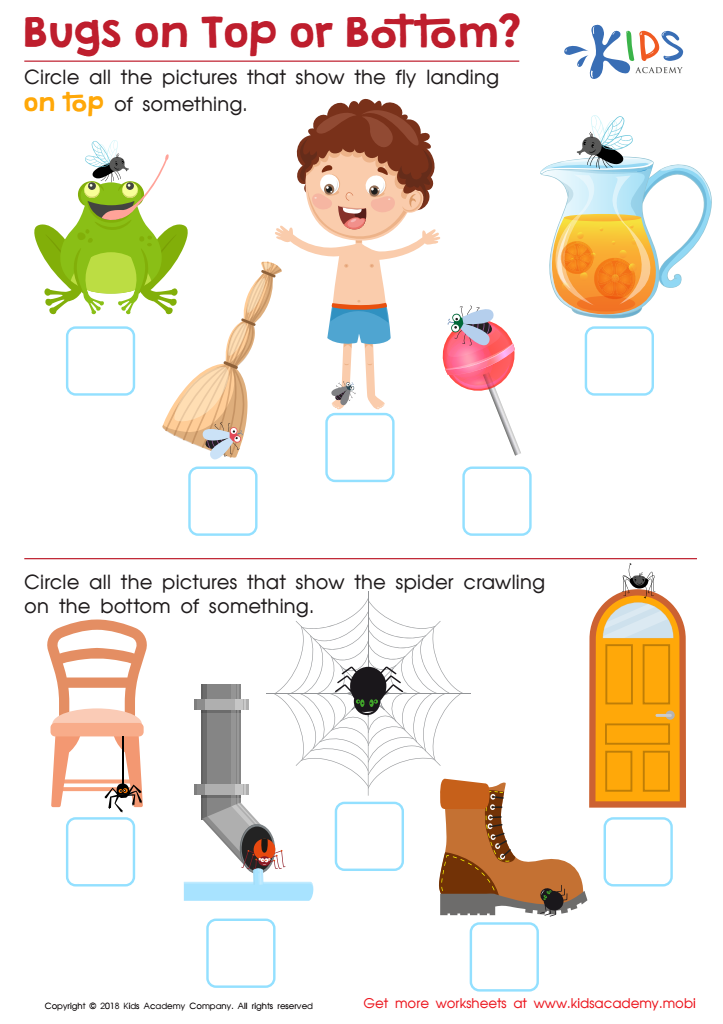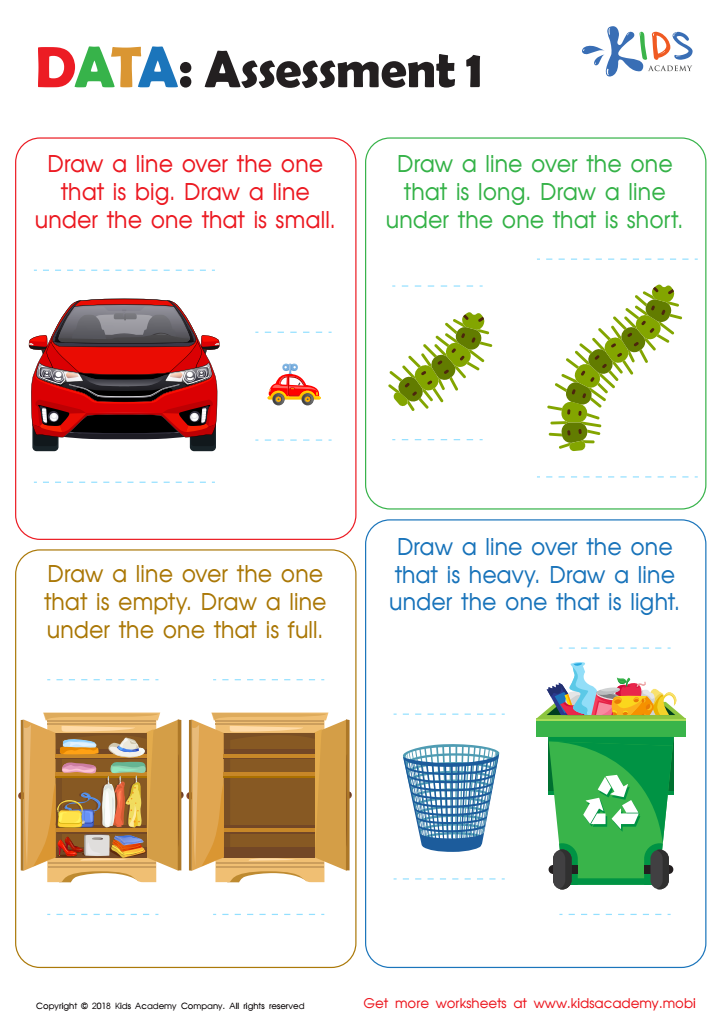Basic counting skills Geometry Worksheets for Ages 6-7
3 filtered results
-
From - To
Explore our comprehensive collection of Basic Counting Skills Geometry Worksheets tailored for children aged 6 to 7! These engaging and interactive worksheets are designed to nurture essential counting abilities while introducing foundational geometry concepts. Your young learners will enjoy various activities, from counting shapes to identifying patterns, all contributing to their mathematical confidence. Perfect for teachers and parents alike, our worksheets promote critical thinking, enhance spatial awareness, and make learning fun. Download these valuable resources today and help your child build a strong mathematical foundation while developing essential geometry skills through creativity and hands-on practice!


House Fractions Worksheet


Bugs on Top or Bottom? Worksheet


Data: Assessment 1 Worksheet
Basic counting skills and an understanding of geometry are foundational elements of early mathematics education for children ages 6-7. These concepts are not just abstract; they play a crucial role in everyday life and future learning. Mastery of counting helps children develop problem-solving skills and logical reasoning, allowing them to quantify and compare quantities, recognize patterns, and grasp the significance of numbers in the world around them.
Geometry, on the other hand, introduces children to shapes, spatial reasoning, and the relationships between objects. By learning about geometric shapes, children enhance their ability to visualize and organize their environment, which is essential in various contexts, from art to architecture. Understanding basic geometric concepts can also foster critical thinking, as children learn to recognize shapes, understand their properties, and apply this knowledge in real-world situations such as measuring or designing.
Moreover, these foundational skills are closely connected and help prepare children for more advanced mathematical concepts in the future. By prioritizing counting and geometry during these formative years, parents and teachers nurture a strong mathematical base, fostering confidence in children’s abilities, enhancing academic performance, and inspiring a lifelong interest in learning. These skills help ensure that children are well-equipped to tackle more complex challenges in later grades.
 Assign to My Students
Assign to My Students































